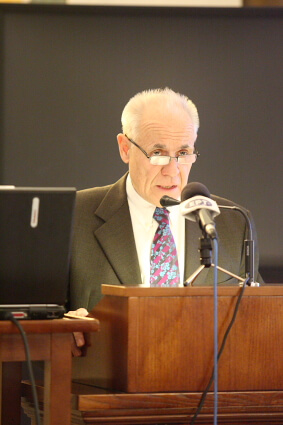
Professor Emeritus Michael Meimaris is the founder of the New Technologies Laboratory in Communication, Education and the Mass Media of the Faculty of Communication and Media Studies of the University of Athens. He has served as Head of the Faculty as well as Director of the University Research Institute of Applied Communication. He has studied Mathematics in the University of Athens and Statistics and Computer-Based Data Analysis in Paris (Université Paris VI, Pierre et Marie Curie). His scientific interests involve the application of New Technologies in Communication, Education and the Mass Media, Graphics and Computer Animation, the New Technological Communication Environment and its design, Digital Storytelling, Intergenerational Communication and Learning, Visual Communication, Digital Game-Based Learning, Open and Distance Education, as well as the training of educators in the New Technologies field. He is a member of the International Committee and President of the National Committee of the Möbius Awards, member of the Scientific Board of the Maison des Sciences de l’Homme Paris-Nord, as well as of C.I.T.I. of the University of Lisbon and member of the jury of the French Laboratories of Excellence action of the French National Research Agency (ANR). He served as member of the Governing Board of the UNESCO Institute for Information Technologies in Education (IITE) between 2014 and 2021. He has been awarded Chevalier de l’Ordre des Palmes Académiques of the French Republic.
TITLE: Ad fontes
The concept of the need for a “good enough screen” that we propose, in accordance with Donald Winnicott’s saying about a “good enough mother”, derives from our connection with the Digital Storytelling process.
Through the steps of the creation of a Digital Narrative, we can achieve:
-the creation of interpersonal relations, the development of behaviours that promote socialization and the sense of belonging within the group of the Story Circle as social microcosm
-the palliative emotional experience that derives from the engagement with the discovery, selection and presentation of the appropriate each time polytropic content in the form of images, video, sound, music and narration by the story creators themselves
-the cleansing, ultimately, processes of making confessions and sharing personal experiences, that are entangled in a DST project.
The screening and commenting on a number of Digital Stories during the conference will illustrate the power DST potentially has.
In times of multi-level and long-standing crisis, the need to process our psychological experiences and our stories, is necessary today more than ever.